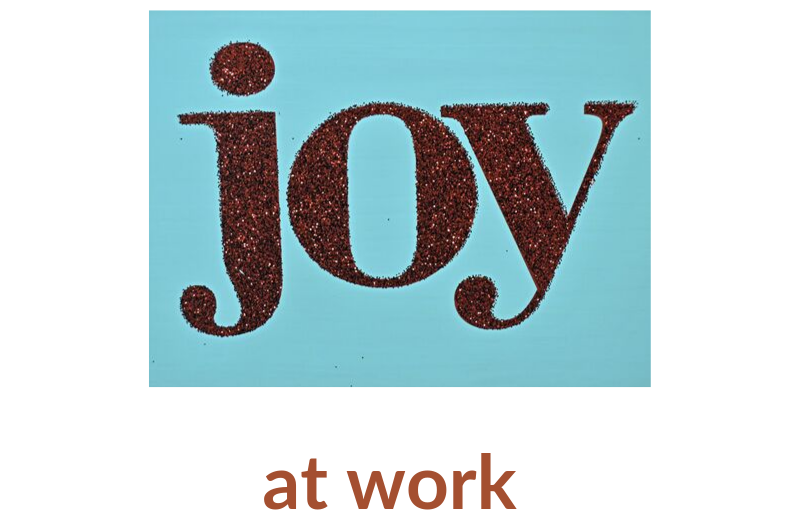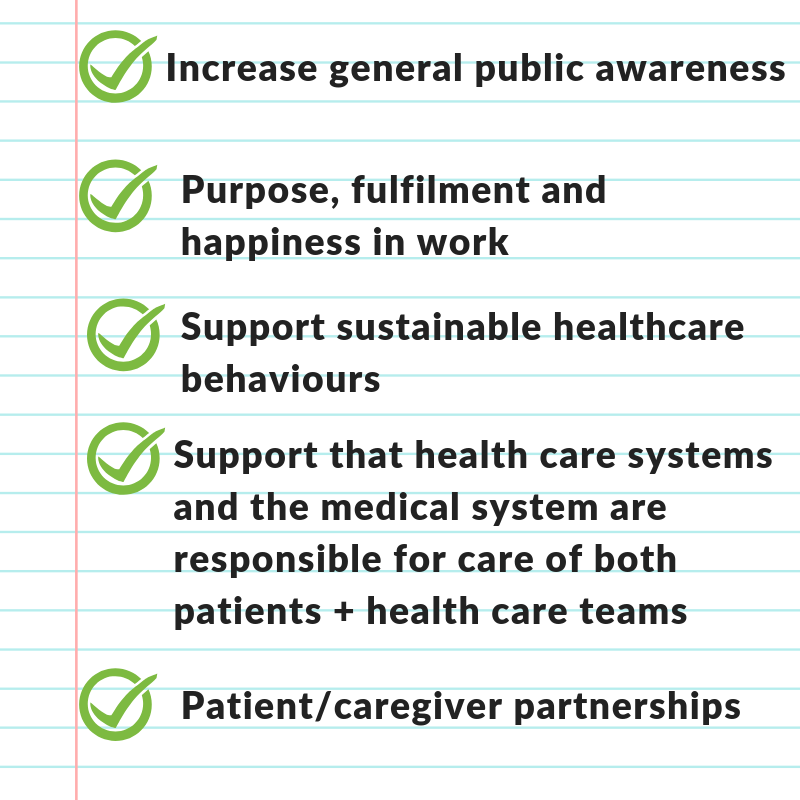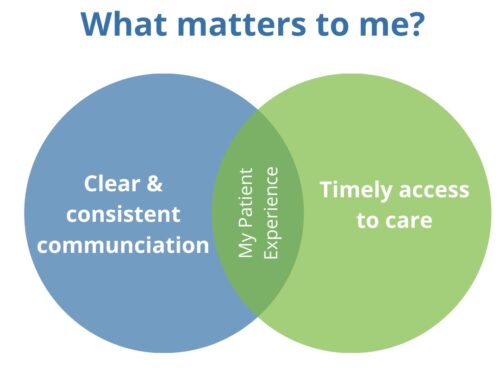Happy healthcare = happy patient?
How joy at work affects physician and health care team wellness and patient care
Joy is defined as a “state of happiness” and can mean something different for each of us. We can experience joy in multiple ways, places and states. But can we bring what gives us joy at home to work, and vice versa? Is joy at work possible?
This can be hard in complex systems such as healthcare, which are often overburdened for both patients and staff, with lack of resources, increased rates of burnout, gaps in communication, and delays in treatments.

Yet joy is one of healthcare’s greatest potential assets and offers the opportunity for its staff, at all levels, to profoundly change and improve lives through caring and healing—which should be joyful activities, not just sources of stress. But the many barriers and challenges to providing high-quality healthcare are contributing towards, according to research, a decrease in joy at work. This decrease in joy at work is also adding to the decline in physician wellness and health.
As a patient, this is of concern to me.
It’s been nine years since my diagnosis with a non-malignant brain tumour and seven years since my emergency brain surgery. In that time, I can say that I have been cared for by my fair share of the healthcare team network. For almost a decade, I’ve had many opportunities to observe, think and learn.
I have realized how the joy of work can impact the care I receive. I have seen individuals whose joy in their work has made me want to work in healthcare! This joy has made me feel connected to them. I feel heard, and I’m confident in their abilities to provide me quality care.
On the flip side, I have seen individuals who have lost the spark, which affects their empathy and attention to detail as they hurry between multiple patients, admin tasks and the many challenges of navigating the healthcare system and its silos. My care has suffered as a direct result of this loss of joy in their work.

It is only since I have become more actively involved in health advocacy work that the reality of health care, the complexity of the system and its impact on its worker bees, has become visible. I’m not sure that the general public is truly aware about joy at work in healthcare and issues such as physician wellness: what it means, why it is declining and what that means for them, for me, as patients, now or in the future. I think this message needs to be widely communicated.
How can we shift culture on joy at work?
We need to understand as communities that when our healthcare providers are not optimally well, a wide range of consequences can occur. From high turnover rates to low job performance to decreased patient satisfaction and quality of care and even medical error. We are only human after all.
How can we create change? By creating a demand for change from the very individuals who are being cared for. Is this possible?
I know that working in healthcare is both physically and emotionally demanding yet offers the chance to change and improve lives and that is an amazing purpose – no matter what part of healthcare people are working in.
As a patient, I am eternally grateful to my health care team for where I am today. Seven years ago, I almost lost my life, but what I remember most is hearing a hushed ‘happy birthday’ song at the nurses’ station above the melody of my beeping monitors, the joy I shared with my nurse over my first hair wash, the teamwork and respect for each other I saw when lying in theatre waiting for my blood patch.

As a patient, wife and mother, I want my husband and son to know how important it is to have individuals who find purpose, fulfilment and happiness in their work. I want them to support healthcare teams who are driven in their work because that means so much more for our care, both now and in the long term. I want them to support the healthcare staff who take a coffee or lunch break, or a sick day, because ‘that’s normal’ and more sustainable for our healthcare system and the individuals who keep it going. I want them to support the idea that government, healthcare systems, and the medical system as a whole, are responsible not only for our care but also for the support of the individuals who work within them.
By supporting healthcare providers and looking for ways to partner with patients and caregivers, we are helping ensure the delivery of safe and high quality patient care.

As a patient, wife and mother, I ask healthcare to find the Joy at Work Champions, those individuals who have a strong sense of “What matters to them”, know what brought them to their current role and can talk about their “why.”
Let’s light the flames on human connection, find the joy, open the discussion on physician wellness and help make healthcare sustainable for us all.



#findthejoy #physicianwellness #healthcare
References
2. It Isn’t Joy in Work; Joy IS the Work” – IHI
3. IHI Framework for Improving Joy in Work
4. Physicians aren’t ‘burning out.’ They’re suffering from moral injury – STATNews
5. Physician burnout and medical breakthroughs: a patient’s story
6. Applying Community Organizing Principles to Restore Joy in Work






Leave A Comment